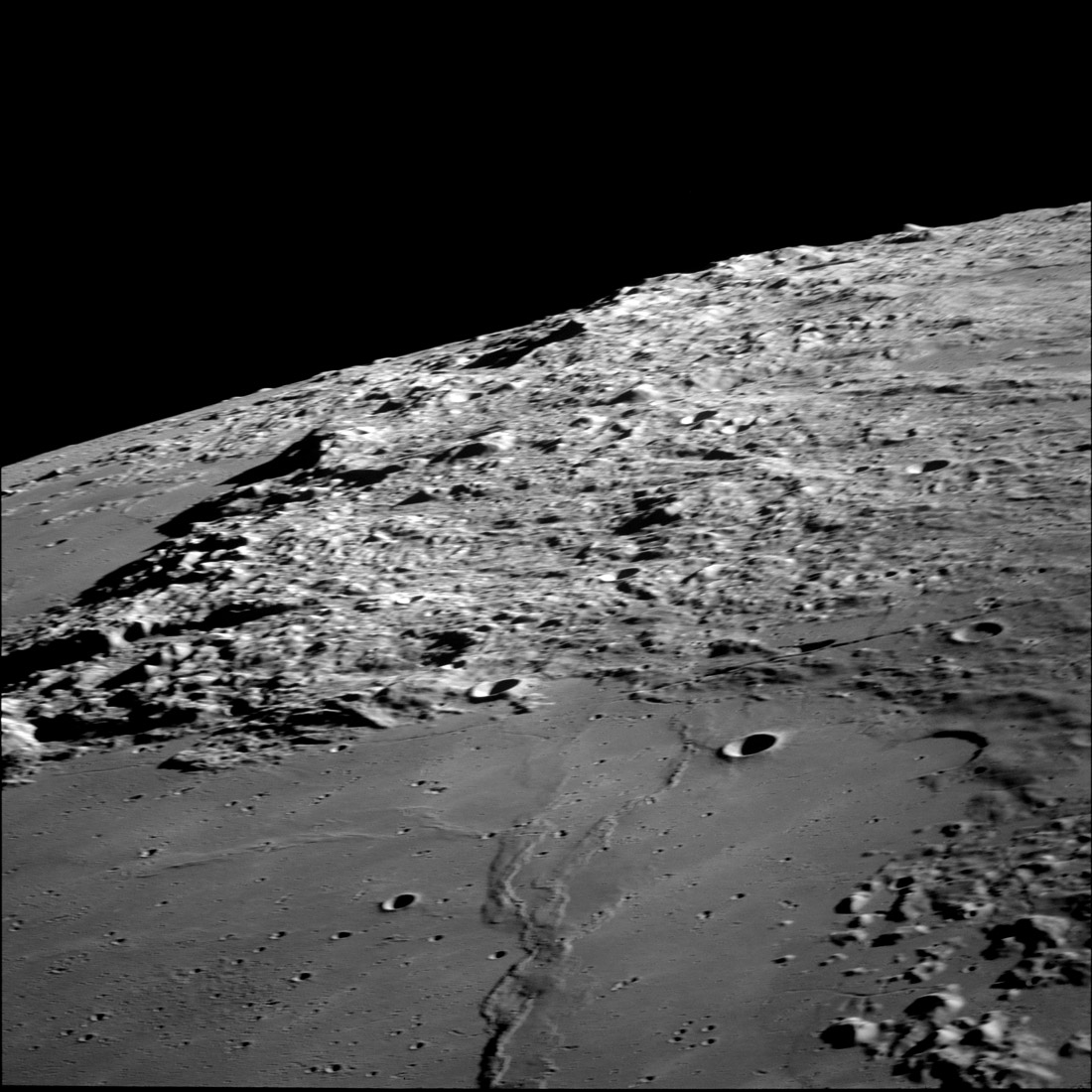Difference between revisions of "July 25, 2014"
| (One intermediate revision by the same user not shown) | |||
| Line 1: | Line 1: | ||
__NOTOC__ | __NOTOC__ | ||
=Half a Hyginus?= | =Half a Hyginus?= | ||
| + | <!-- Start of content --> | ||
<!-- ws:start:WikiTextHeadingRule:0:<h1> --> | <!-- ws:start:WikiTextHeadingRule:0:<h1> --> | ||
<!-- ws:start:WikiTextLocalImageRule:6:<img src="/file/view/LPOD-Jul25-14.jpg/517018786/LPOD-Jul25-14.jpg" alt="" title="" /> -->[[File:LPOD-Jul25-14.jpg|LPOD-Jul25-14.jpg]]<!-- ws:end:WikiTextLocalImageRule:6 --><br /> | <!-- ws:start:WikiTextLocalImageRule:6:<img src="/file/view/LPOD-Jul25-14.jpg/517018786/LPOD-Jul25-14.jpg" alt="" title="" /> -->[[File:LPOD-Jul25-14.jpg|LPOD-Jul25-14.jpg]]<!-- ws:end:WikiTextLocalImageRule:6 --><br /> | ||
<em>Apollo 12 image [http://www.lpi.usra.edu/resources/apollo/images/print/AS12/50/7434.jpg AS12-50-7434]</em><br /> | <em>Apollo 12 image [http://www.lpi.usra.edu/resources/apollo/images/print/AS12/50/7434.jpg AS12-50-7434]</em><br /> | ||
<br /> | <br /> | ||
| − | Yesterday in the comments [http://lpod.wikispaces.com/share/view/68801526 section], Maurice Collins pointed out this ancient Apollo 12 image showing Sinus Aestuum and its eastern shore, with the Apennines seen in a wonderful low oblique perspective. Maurice noticed near the bottom right a half crater embayed by Aestuum's lavas. What first caught my eye is the remarkably straight dark shadow just north (above) the half crater - it looks like the emulsion was accidentally sliced by a knife. And then it hit me, Oh, that is the rille and [http://lpod. | + | Yesterday in the comments [http://lpod.wikispaces.com/share/view/68801526 section], Maurice Collins pointed out this ancient Apollo 12 image showing Sinus Aestuum and its eastern shore, with the Apennines seen in a wonderful low oblique perspective. Maurice noticed near the bottom right a half crater embayed by Aestuum's lavas. What first caught my eye is the remarkably straight dark shadow just north (above) the half crater - it looks like the emulsion was accidentally sliced by a knife. And then it hit me, Oh, that is the rille and [http://www2.lpod.org/wiki/September_30,_2012 vee-vent] that was the source of the Bode pyroclastic deposits. (And this image suggests that the rille may have originally continued to the narrower short rille to the left.) On the LRO [http://bit.ly/1phILna image] (and in real life with somewhat higher Sun than this Apollo view) this area is quite dark due to the ash. The 13-14 km wide half crater does not have a rim elevated around its immediate surroundings on its east side. That can occur with eroded impact craters, but it also is a characteristic of volcanic collapse features - notice that the vee-vent is rimless. So, it is permissible to speculate that the half crater is a volcanic caldera - one of the largest on the Moon - Hyginus is perhaps similar but only 8.7 km wide. Zooming in to the NAC images on QuickMap [http://bit.ly/1ukEOX2 shows] that dark deposits extend away from the rim, consistent with the putative caldera being the source for at least some of the Bode pyroclastics. In fact, the texture of the immediate area around the half crater is muted, as expected if mantled by ash. Finally, for those who like crater-hopping (like star-hopping) what is the mountain on the upper right horizon?<br /> |
<br /> | <br /> | ||
<em>[mailto:tychocrater@yahoo.com Chuck Wood]</em><br /> | <em>[mailto:tychocrater@yahoo.com Chuck Wood]</em><br /> | ||
<br /> | <br /> | ||
<strong>Related Links</strong><br /> | <strong>Related Links</strong><br /> | ||
| − | <em>[ | + | <em>[[21st Century Atlas of the Moon|21st Century Atlas]]</em> charts 17 & 18.<br /> |
<br /> | <br /> | ||
<p><b>Yesterday's LPOD:</b> [[July 24, 2014|Wow!]] </p> | <p><b>Yesterday's LPOD:</b> [[July 24, 2014|Wow!]] </p> | ||
Latest revision as of 08:29, 28 October 2018
Half a Hyginus?

Apollo 12 image AS12-50-7434
Yesterday in the comments section, Maurice Collins pointed out this ancient Apollo 12 image showing Sinus Aestuum and its eastern shore, with the Apennines seen in a wonderful low oblique perspective. Maurice noticed near the bottom right a half crater embayed by Aestuum's lavas. What first caught my eye is the remarkably straight dark shadow just north (above) the half crater - it looks like the emulsion was accidentally sliced by a knife. And then it hit me, Oh, that is the rille and vee-vent that was the source of the Bode pyroclastic deposits. (And this image suggests that the rille may have originally continued to the narrower short rille to the left.) On the LRO image (and in real life with somewhat higher Sun than this Apollo view) this area is quite dark due to the ash. The 13-14 km wide half crater does not have a rim elevated around its immediate surroundings on its east side. That can occur with eroded impact craters, but it also is a characteristic of volcanic collapse features - notice that the vee-vent is rimless. So, it is permissible to speculate that the half crater is a volcanic caldera - one of the largest on the Moon - Hyginus is perhaps similar but only 8.7 km wide. Zooming in to the NAC images on QuickMap shows that dark deposits extend away from the rim, consistent with the putative caldera being the source for at least some of the Bode pyroclastics. In fact, the texture of the immediate area around the half crater is muted, as expected if mantled by ash. Finally, for those who like crater-hopping (like star-hopping) what is the mountain on the upper right horizon?
Chuck Wood
Related Links
21st Century Atlas charts 17 & 18.
Yesterday's LPOD: Wow!
Tomorrow's LPOD: Airbrushed Out?
COMMENTS?
Register, Log in, and join in the comments.



